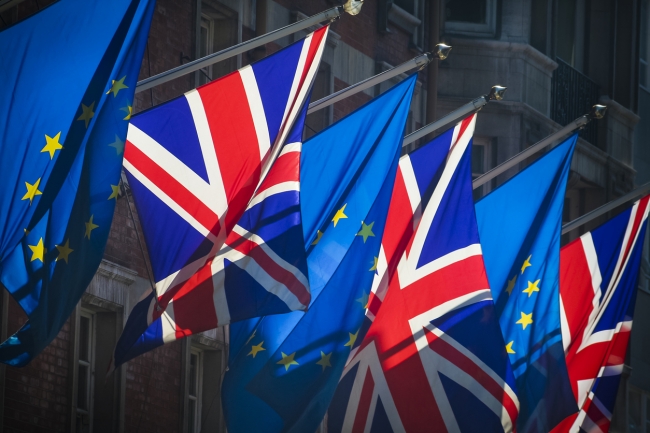3 minute read
Deal or no deal: Three things manufacturers can do now for Brexit
Preparations for a hard Brexit are rising up the government agenda. But are manufacturers putting the right plans in place to mitigate the risks a ‘no deal’ could have on their business?
Tom Lawton, head of manufacturing at BDO, highlights three things manufacturers can do now to prepare for whatever form Brexit takes next year.
Tom’s advice for manufacturers is: “Whatever your views on Brexit, preparing for all eventualities makes sound business sense. If you haven’t started planning, you may end up losing out to competitors that have done their groundwork. It is not too late to start.”

Manufacturers should put the right plans in place to mitigate the risks of a ‘no deal’ Brexit could have on their business / Picture: Getty/iStock
1. Apply for AEO status now
“If you don’t have it already, it is crucial to apply for Authorised Economic Operator (AEO) accreditation if your business has an international supply chain that carries out customs-related activities in the EU,” said Tom.
AEO status opens the door to a range of business privileges. It lowers your risk profile as far as the authorities are concerned, therefore minimising the risk of delays at the border. It also allows businesses to waive or reduce mandatory financial guarantees for suspended and deferred customs duty and import VAT as well as to qualify for other customs duty reliefs, such as Customs Warehousing and Inward Processing.
He added: “HMRC is getting very busy with the increasing number of applications, and they are legally entitled to a six-month processing lead time. Therefore, applications need to be submitted as soon as possible to give manufacturers the best chance of being ready by Brexit day.”
2. Origin of goods analysis
If the final Brexit reality is that the UK and EU enter into a Free Trade Agreement, understanding the economic origin of goods will be key to determining if a UK manufacturer could benefit from zero tariffs at import.
For example, if a UK manufacturer buys a component from a French supplier (which was manufactured in France), we would expect the UK business to be able to import that component with no customs tariff under a Free Trade Agreement. However, if the French supplier had sourced that component (or a substantial element of it) from, for example, China, then the origin criteria would not be met. That would result in the UK business needing to pay the applicable tariff rate at import, regardless of the fact that the component had been procured from a French supplier.
Tom added: “Carrying out a detailed analysis of where any products or components have been manufactured is essential to establish the ‘economic origin’ of the goods. Manufacturers should interrogate their production records to calculate and demonstrate that their products have sufficient qualifying economic content. This is a potentially complex and time-consuming task but it an important exercise I’d encourage companies to do sooner rather than later.”
3. Local VAT registrations
It is not currently necessary for UK businesses to register for VAT in every EU country in which they sell goods. Many countries have different registration requirements for EU and non-EU businesses; some countries insist on a fiscal representative being appointed for all non-EU businesses but they are banned from doing so for EU businesses.
This, however, could change after Brexit. “Once we’re out of the EU, UK businesses will have to fulfil the non-EU registration requirements,” Tom concluded, “So, if manufacturers are already VAT registered within the EU, they will need to check that the local compliance requirements will not change. If they do change, they will have to re-register.”
In addition, the VAT simplification known as ‘triangulation’ may come to an end. Triangulation refers to a scenario when a business in one member state orders goods from another member state and arranges for it to be delivered to a third member state.
For example, if a UK business orders spare parts from a supplier in Germany and asks for them to be delivered to its customer’s site in France, triangulation currently removes the need for the UK business to register for VAT in either Germany or France because it is already registered within an EU country. Post-Brexit, UK businesses in this situation will need to register for VAT in EU countries. This could create another substantial barrier to trade and will add new compliance burdens for manufacturers with international supply chains.
